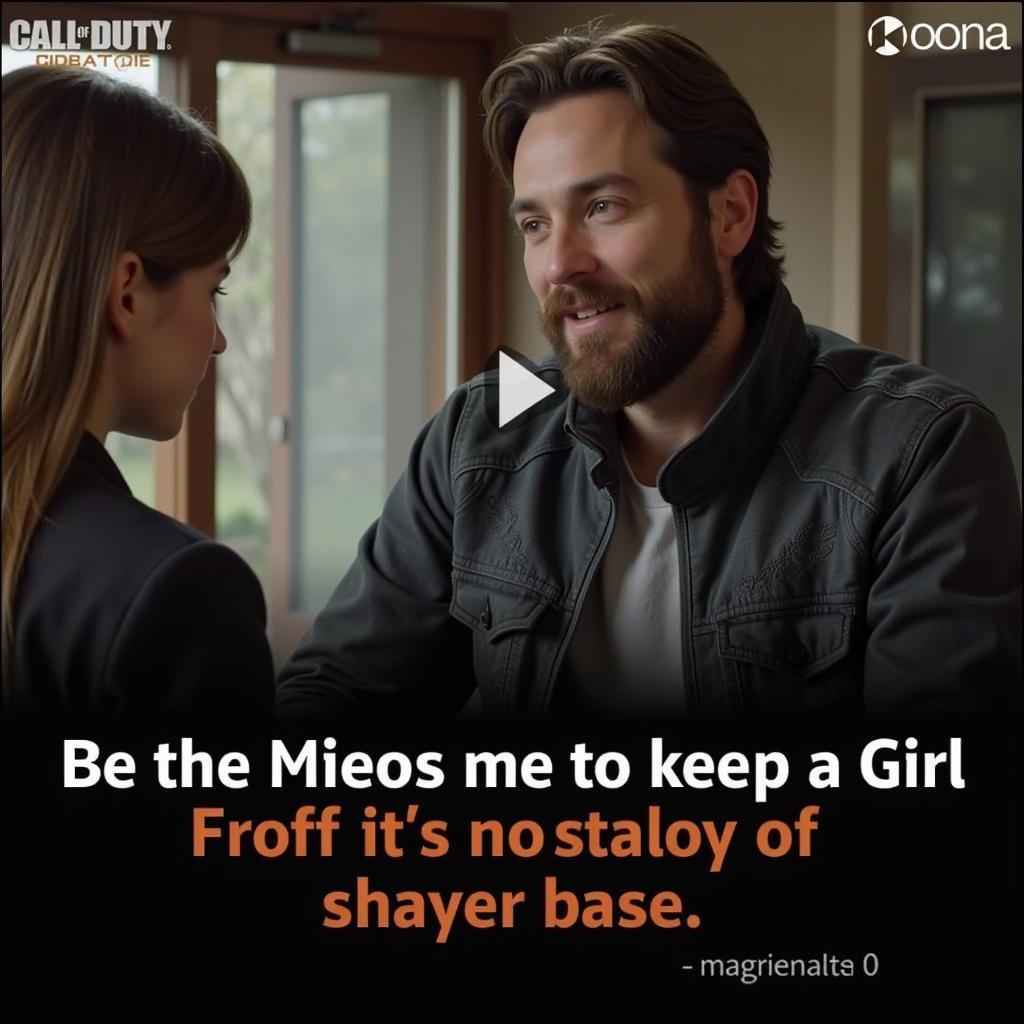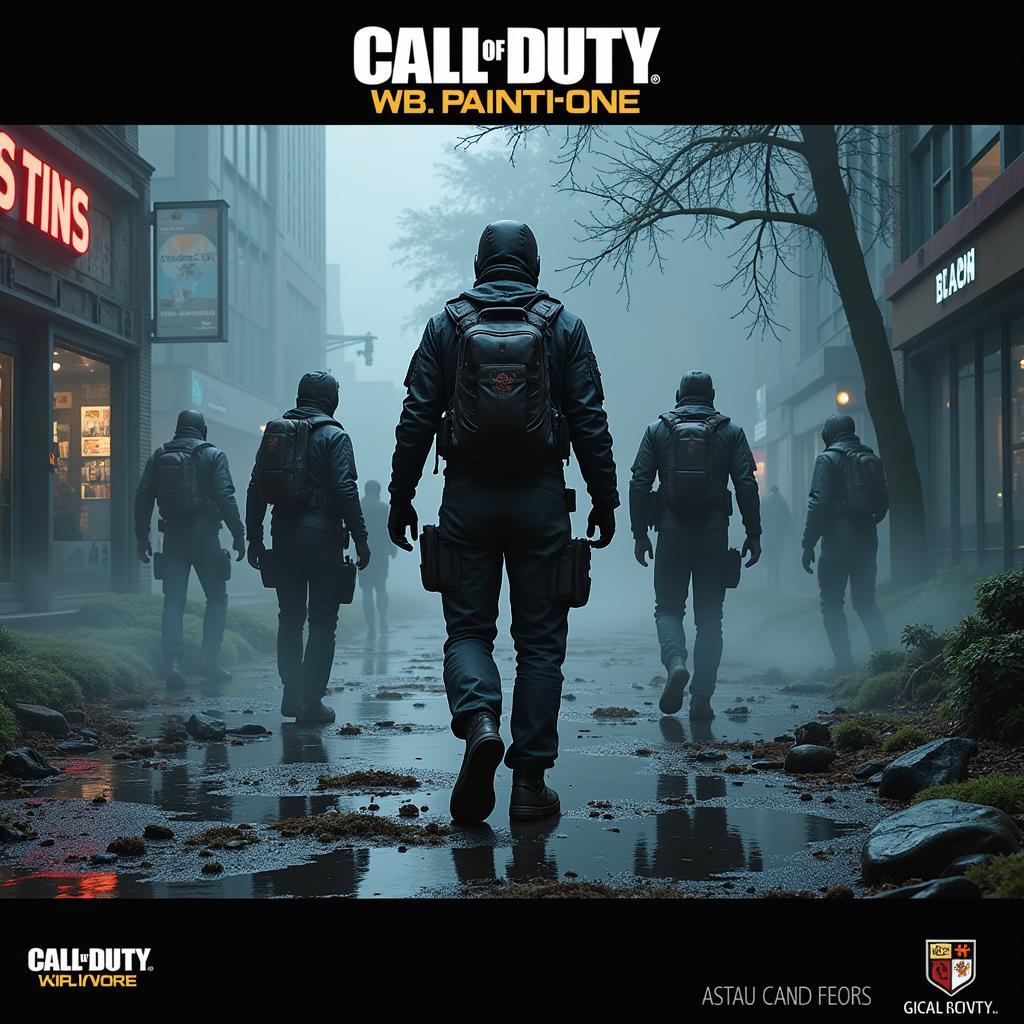The Call Of Duty Fan Paradox is a fascinating phenomenon. Players often express frustration with the series, citing repetitive gameplay, aggressive monetization, or a perceived lack of innovation. Yet, year after year, millions return to the virtual battlefield, driving record sales and engagement. This begs the question: what keeps players hooked despite their apparent discontent?
The Allure of Familiar Frustration: Why We Keep Playing Call of Duty
One key aspect of the paradox lies in the very nature of Call of Duty’s core gameplay. The fast-paced, arcade-style shooting provides an instant gratification loop. Killing enemies, leveling up, and unlocking new gear triggers a dopamine rush that keeps players coming back for more. This is further amplified by the competitive multiplayer, where the pursuit of victory and higher ranks becomes a powerful motivator. Even when frustrated, players are drawn back by the promise of that next killstreak or clutch victory.
Another contributing factor is the social aspect. Call of Duty has fostered a vibrant community of players who connect through online multiplayer. For many, playing with friends is the primary draw, regardless of any grievances with the game itself. The shared experience of virtual combat, the banter, and the camaraderie create a sense of belonging that transcends individual frustrations.
The Power of Nostalgia and Habit in the Call of Duty Fan Paradox
Nostalgia plays a significant role in the Call of Duty fan paradox. Many players have invested years, even decades, into the franchise. They have fond memories of past titles, specific maps, or memorable moments shared with friends. This nostalgia creates a powerful emotional connection that keeps them returning, hoping to recapture that feeling, even if the current iteration doesn’t quite live up to the memories.
Habit, too, is a powerful force. For some, playing Call of Duty has become a ritual, a way to unwind after a long day or connect with friends. Even if they’re not actively enjoying the game, the familiarity and routine provide a sense of comfort and predictability.
 Call of Duty Player Experiencing Nostalgia
Call of Duty Player Experiencing Nostalgia
Is Call of Duty Evolving? Addressing the Concerns of the Fanbase
While the core gameplay loop remains largely unchanged, developers have made efforts to address some of the recurring criticisms. New game modes, maps, and mechanics are introduced with each iteration, attempting to provide fresh experiences and prevent stagnation. However, these additions often feel incremental rather than revolutionary, fueling the perception of a lack of innovation.
The monetization model, particularly the loot box system, has been a major source of contention. While some changes have been made, the push for in-game purchases remains a significant point of frustration for many players.
“The key to breaking the paradox lies in finding a balance between innovation and familiarity,” says Dr. Emily Carter, a video game psychologist. “Developers need to respect the core elements that players love while also pushing the boundaries and offering genuinely new experiences.”
The Future of the Call of Duty Fan Paradox
The Call of Duty fan paradox is a complex interplay of psychological and social factors. It highlights the power of habit, nostalgia, and social connection in driving player engagement, even in the face of frustration. Whether developers can successfully address the underlying concerns and break the cycle of discontent remains to be seen.
 Future of Call of Duty Gaming Concept
Future of Call of Duty Gaming Concept
In conclusion, the Call of Duty fan paradox reflects the enduring appeal of a franchise that, despite its flaws, continues to captivate millions. The combination of addictive gameplay, social connection, and the pull of nostalgia creates a powerful draw that keeps players returning, year after year, to the familiar battlegrounds of Call of Duty.
FAQ
-
What is the Call of Duty fan paradox?
The paradox refers to the phenomenon of players expressing frustration with the series yet continuing to play it. -
Why do players keep playing Call of Duty despite their complaints?
Factors include addictive gameplay, social connection, nostalgia, and habit. -
Do developers address player concerns?
They attempt to introduce new features and address some criticisms, but often fall short of expectations. -
What is the future of the Call of Duty fan paradox?
The future depends on developers’ ability to balance innovation and familiarity. -
How does nostalgia influence the paradox?
Nostalgia creates a powerful emotional connection to past titles, keeping players invested in the franchise. -
What role does the social aspect play?
Playing with friends is a major draw for many, regardless of individual grievances with the game. -
How does the core gameplay contribute to the paradox?
The fast-paced, arcade-style shooting provides an instant gratification loop that keeps players engaged.
When you need support, please contact Phone Number: 0903426737, Email: fansbongda@gmail.com Or visit our address: Group 9, Area 6, Gieng Day Ward, Ha Long City, Gieng Day, Ha Long, Quang Ninh, Vietnam. We have a 24/7 customer support team.


